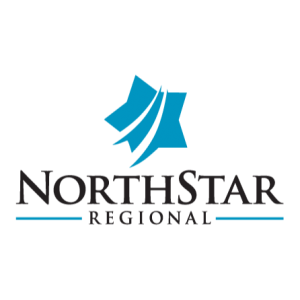Addiction Treatment
Addiction
Treatment
As addictions take over one’s life, substance use disorder treatment is a way to regain control. Addictions may begin with a personal choice to use alcohol or drugs, but research shows that for many, a physiological dependence takes hold. Like other chronic illnesses, addiction can be treated successfully, and NorthStar Regional can help.

Addiction Treatment
As addictions take over one’s life, substance use disorder treatment is a way to regain control. Addictions may begin with a personal choice to use alcohol or drugs, but research shows that for many, a physiological dependence takes hold. Like other chronic illnesses, addiction can be treated successfully, and NorthStar Regional can help.
Introduction
Understanding the Impact of Addictions
As experts in addiction treatment, our licensed professionals at NorthStar Regional understand that mental health problems are difficult to face, and some people turn to alcohol, drugs, or other behaviors to distract themselves or ease their pain. Continued use can lead to destructive habits, patterns, and addictions. Mental health problems and alcohol or drug related disorders often occur side-by-side. The mental health disorder and the substance abuse disorder interact with each other and commonly increase the severity of both.
The term co-occurring disorder, also called a dual-diagnosis disorder, refers to having a mental health and substance use disorder at the same time. Substance use behaviors of any kind can be described as an intense effort to fill an underlying hunger. This is not a hunger for food or nourishment, but rather for comfort, approval, and a yearning to fill an emotional emptiness. The goal of alcohol or drug use is often to bring comfort to the sad and depressed, calm the anxious, and act as a distraction for the angry person. But the misuse of any substance or activity only brings temporary satisfaction. Addictions do not touch the important underlying emotional issues and can create long-term physical and mental health consequences, which is where our addiction treatment programs can help.
Substance Use Disorder Checklist
- I have used more alcohol or drugs than I planned.
- My alcohol or drug use has interfered with my job.
- Alcohol or drug use caused conflict with my spouse or family.
- I feel guilty or remorseful about some aspect of my use pattern.
- I spent a lot of time using, drinking, or getting over the effects of use.
- The urge to drink or use was so strong I felt I could not resist.
- Alcohol or drug use has interfered with my social life.
- I have been in legal trouble (arrested, jailed, received a DWI/DUI) because of my substance use.
- I spent time thinking about how I will get more alcohol or drugs
- I have blacked out.
- I have tried to cut down or quit but found I could not.
- Family or friends have told me I have a problem with drugs or alcohol.
Moving Forward in Hope
Developing Emotional Regulation
When facing the problem of addiction, people frequently address the physical symptoms of substance use but ignore the underlying mental and emotional connections. When those connections are neglected, it is difficult to maintain sobriety. Individuals either go back to the original substance or transfer to another kind of dependence. Because the desire to escape psychological pain is strong, it is necessary to identify underlying emotional issues and establish healthy ways to manage and cope with difficult situations as they emerge. Substance use and mental health disorders must be dealt with at the same time in addiction treatment programs. Continue to identify positive coping strategies and practice them regularly and you will build the emotional strength to withstand temptations and triggers.
Next Steps
Reaching Out
Counselors can answer common questions, provide support and therapy, and help with emerging habits. Continued follow-up with counseling and support groups can help you recognize early warning signs of relapse and provide intervention should problems develop. Counseling helps increase self-esteem, teaches skills to manage emotions, and develops positive coping abilities. These addiction treatment groups and programs can make seemingly impossible lifestyle changes possible and much more likely. Knowing when you need help, and being willing to ask for it, can make all the difference in your long-term recovery.
Our experienced addiction staff will:
- Provide individualized treatment.
- Utilize cognitive behavioral therapy to address co-occurring disorders.
- Help you make informed decisions regarding your addictions and mental health.
Looking to Learn More?
Contact us today to learn more about our co-occurring addiction treatment programs.


